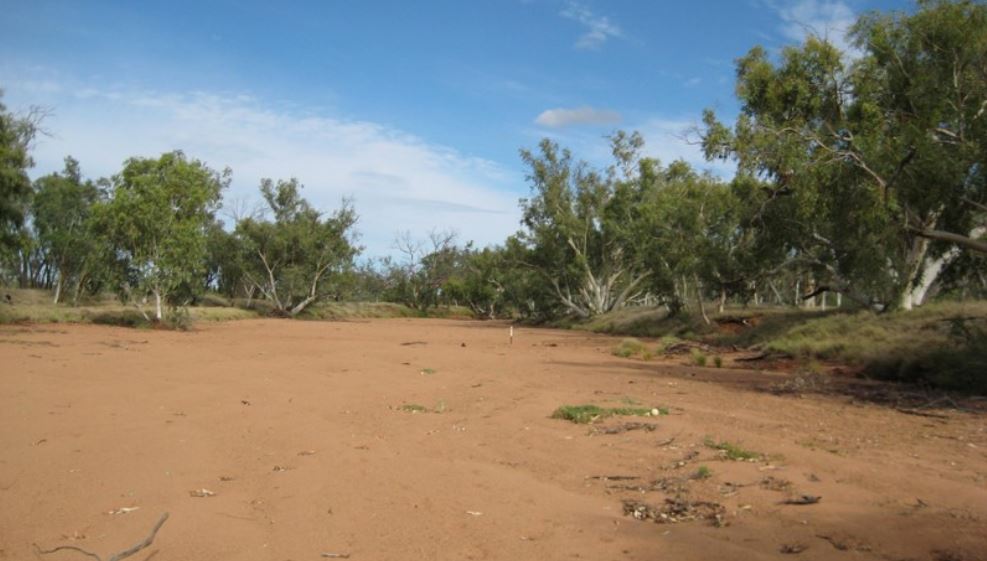
Enhancing recovery and building resilience in drought-prone areas of Australia are the themes of three new federal research grants awarded to Flinders University experts this month.
Two of the Flinders University projects have been funded by the Australian Government Drought Resilience Innovation Grants Program announced in early March.

The third project announced this week is funded through the $20 million Murray-Darling Healthy Rivers Program and will see Flinders University hydrogeology researchers use an almost $100,000 grant to establish a a solar-powered enhanced evaporation pond system for in-situ salt extraction in the Riverland.
The bid to reduce salinity in the River Murray will see College of Science and Engineering researchers awarded $99,984 to design and install a new salt extraction system to reduce the salinity of water entering the river from Bookpurnong Floodplain.
The National Centre for Groundwater Research and Training (NCGRT) researchers involved include Associate Professor Huade Guan, Dr Karina Gutierrez-Jurado, Dr Eddie Banks, Professor Okke Batelaan and Dr Greg Falzon.

Earlier this month, the Drought Resilience grants awarded will provide funding for 12-month investigations led by Flinders University experts to test the feasibility of and help develop innovative projects.
The first, bolstered by a $109,003.50 Proof-of-Concept grant from the Department of Agriculture, Water and the Environment Future Drought Fund, will work with South Australian farming communities on resilience mapping and contingency planning to better prepare for and manage future drought.
The project – led by Professor Robert Crouch from the College of Business, Government and Law, with colleague Professor Paul Arbon, from the Torrens Resilience Institute (College of Nursing and Health Sciences) – will identify, evaluate and map existing family, community and business networks and their interdependence and impact on drought resilience, and other “all-hazard” events.
“This project will help to develop practical strategies after refining a general community Drought Resilience Mapping and assessment framework and toolkit (‘DRMT’),” says Professor Crouch.
“This toolkit will identify strengths, weaknesses and gaps in critical economic and community connections to prepare rural communities for possible hardships in the future.”

A second Future Drought Fund Ideas grant of $45,454.54, awarded to Flinders University Professor Adrian Werner (College of Science and Engineering), aims to build drought resilience in coastal groundwater systems.
Based at the National Centre for Groundwater Research and Training, Professor Werner’s project will evaluate a proposed system for capturing fresh groundwater from near-shore regions. Colleague Dr Amir Jazayeri will also support the Flinders University project.
Professor Werner, an expert in onshore and coastal freshwater systems, says the project will evaluate whether the groundwater which otherwise would be lost to the sea could be efficiently reinjected into inland aquifers or used directly for irrigation.
“This project will use computer modelling and physical experimentation to explore methods for reducing fresh groundwater loss to the sea in coastal areas and its storage in inland aquifers,” he says.
“Our research will deliver designs and recommendations on the effectiveness and economic viability of engineering solutions for extracting near-shore fresh groundwater for reinjection into aquifers for its storage and use during periods of low rainfall and drought.
“In this way, the project aims to build long-term drought resilience and preparedness for groundwater users in coastal regions, which involves expansive agricultural areas in Australia that are dependent on groundwater for irrigation and stock water.”
The proposed techniques are intended to reduce agricultural reliance on river water and desalinated seawater, thereby enhancing sustainability and increasing the use efficiency of natural assets. The method will also enhance marine health by lowering nutrient loads from groundwater outflow.

